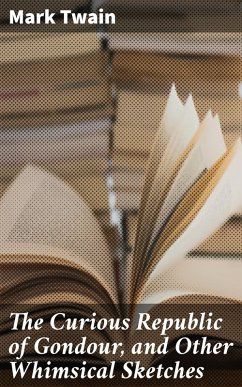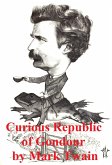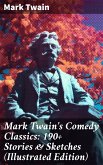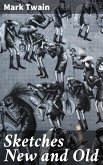In "The Curious Republic of Gondour, and Other Whimsical Sketches," Mark Twain employs his signature wit and satirical style to explore themes of democracy, human nature, and the absurdities of societal norms. Through a blend of humor and imaginative storytelling, Twain presents the fictional Republic of Gondour'Äîa peculiar society governed by an assortment of eccentric characters. This collection unveils Twain's mastery in crafting whimsical sketches that critique contemporary issues while maintaining an engaging narrative structure, effectively bridging the gap between social commentary and entertainment during the late 19th century. Mark Twain, one of America's most celebrated literary figures, is renowned for his keen observations of human behavior and his critiques of American society. Born Samuel Langhorne Clemens, Twain's experiences as a riverboat pilot, gold prospector, and journalist profoundly influenced his worldview. His travels and encounters shaped his understanding of diverse cultures, which is reflected in the fantastical elements of Gondour. Twain's ability to transcend reality while addressing serious topics serves as a testament to his unparalleled literary genius. This delightful collection is highly recommended for readers seeking a blend of humor and profound insight into the human condition. Twain's playful yet incisive examination of democracy and society invites readers to engage with complex ideas in a lighthearted manner, making it a timeless choice for fans of satire and literary exploration.
Dieser Download kann aus rechtlichen Gründen nur mit Rechnungsadresse in A, B, BG, CY, CZ, D, DK, EW, E, FIN, F, GR, H, IRL, I, LT, L, LR, M, NL, PL, P, R, S, SLO, SK ausgeliefert werden.









